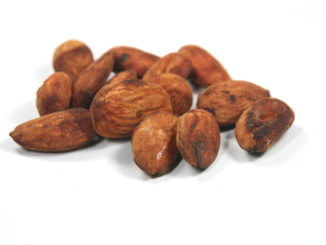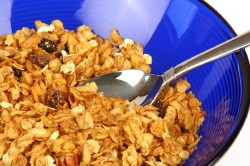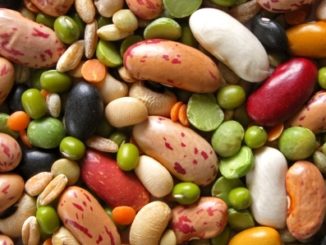
Along with all the other B vitamins that you take in through the diet, vitamin B5 has its own special roles in the body, making it essential for life.
The B vitamins are a class of water soluble vitamins, meaning that they will not be stored in the body as fat soluble vitamins are, making it essential that you take them in on a daily basis.
Those who eat varied mixed diets typically do not have a problem getting enough B vitamins regular along with vitamin B5 specifically, but those who are either dieting and consuming a reduced calorie intake or who eat a very strict diet with limited food variety may suffer deficiencies.
Let’s take a closer look at what vitamin B5 is all about so you can make sure that you understand the basics of what roles this nutrient has in your body.
A List of Vitamin B5 Food Sources

The top sources of food where you can find vitamin B5 include:
- Avocados
- Beef
- Brewer’s yeast
- Broccoli
- Cauliflower
- Dark green vegetables
- Eggs
- Fish
- Fresh vegetables
- Kale
- Kidney
- Legumes
- Liver
- Lobster
- Mushrooms
- Organ meats
- Pork
- Saltwater fish
- Soybeans
- Sunflower seeds
- Split peas
- Tomatoes
- Whole rye flour
- Whole wheat products
How To Consume More Vitamin B5
To boost your intake of vitamin B5, eating a high vegetable diet is the solution. Make sure to include a wide variety of vegetables including all the ones listed above rather than always relying on your classic standbys.
Many people often get into the routine of eating the same thing over and over again and this is definitely going to reduce their chances of taking in a broad spectrum of nutrients and meeting their needs.
By including variety, you’ll not only receive better nutrition but also improve your taste experience as well.
What Role Does Vitamin B5 Perform Inside The Human Body?
One of the very first roles of vitamin B5 in the body is going to be with the secretion of the hormones that are produced, which will then move to their respective targets in the body and act accordingly.
As hormones are involved with essentially every single function for life, if secretion is not taking place as it should, this can really impact the body in a variety of negative ways.
Of particular importance is the role vitamin B5 plays in supporting the adrenal gland, which is responsible for making sure your metabolism is running optimally, utilizing fuel and burning off energy in the body.
It’s also important for maintaining healthy skin, muscles, and nerves, so will provide full body benefits to promote optimal wellness.
In addition to supporting proper hormonal function, vitamin B5 is also going to be involved with the breakdown of the carbohydrates, proteins, and fats you eat so the body can utilize all the various vitamins, minerals, and energy that are delivered by these foods.
Parts of the Body Affected By Vitamin B5
- Adrenal glands
- Digestive tract
- Immune system
- Nervous system
- Skin
The Health Benefits of Vitamin B5
One of the benefits that many people claim vitamin B5 provides is that it will help to fight wrinkle development of the skin and promote a more radiant, youthful appearance, so for those who are concerned with aging, it’s definitely a nutrient that you’ll want to be sure you’re taking in enough of.
Another big benefit to using vitamin B5 is that it can aid with wound healing, so if you’re currently injured in any way or especially if you’ve just had surgery, this vitamin can help to speed up the recovery process and get you feeling well again.
Finally, vitamin B5 can also be effective for helping to treat those with high cholesterol levels, bringing them down closer to a healthier range, so that’s something to discuss with your doctor if you are currently out of a safe range.
Vitamin B5 Recommended Daily Amount
The recommended daily dosage for vitamin B5:
- 0-6 months: 1.7 mg
- 7-12 months: 1.8 mg
- 1-3 years: 2 mg
- 4-8 years: 3 mg
- 9-13 years: 4 mg
- 14-18 years (males): 5 mg
- 14-18 years (females): 5 mg
- 19 years and older (males): 5 mg
- 19 years and older (females): 5 mg
- Pregnant females: 6 mg
- Breastfeeding females: 7 mg
Those who are suffering from Rheumatoid arthritis or high cholesterol levels may be instructed to take higher dosages in supplemental form by their physicians so if you’re battling either of these conditions, it is something to discuss with your treatment doctor.
The best time to take your vitamin B5 supplement is immediately after your meals with water as this is when the body is going to absorb it the best.
Vitamin B5 Deficiency Symptoms
Those who are not consuming sufficient levels of vitamin B5 on a daily basis and not utilizing a supplement along with their diet may suffer a wide range of deficiency symptoms.
As mentioned in the introduction, vitamin B5 is not stored in the body so eating plenty one day and none the next can still set you up for problems over time.
The vitamin B5 deficiency symptoms that you’ll want to be on the lookout for include:
- Fatigue
- Headaches
- Feelings of nausea especially after eating
- Suffering from a tingling sensation in the hands
- Feelings of depression
- High frequency rates of infection
- High levels of fatigue
- Abdominal pains
- Troubles getting to sleep and staying asleep
- Muscle weaknesses and cramps.
In addition to this, some people may also notice that their insulin sensitivity is reduced and they can’t handle the carbohydrates that they’re taking in as well, thus they experience energy highs and lows on a regular basis.
Finally, some people also report cardiac instability as well, which should definitely be discussed with a doctor if you’re noticing this present.
People who are highly stressed out on a daily basis may require more vitamin B5 than those who aren’t, so they should speak with their doctor and consider increasing their dosage slightly higher to account for this.
So there you have all the information to remember about vitamin B5. Eating a varied diet rich in all food groups will help ensure that you’re taking in enough and are promoting optimal health.




I think most of these b vitamins are vital for good health, the more you look into it the more you realize just how important they are. The importance of vitamin B5 in the modern world is especially relevant, vitamin b5 helps with adrenal gland functions, this helps the whole body to cope and deal with stress, which also helps to deal with infections.
Vitamin b5 works in hand with vitamin b6 as well, they help to produce healthy antibodies from your white blood cells. Here are a few benefits you may gain from having a constant and sufficient supply of vitamin b5 in your diet. It may help with rheumatoid arthritis, its also a vital part of our immune system.
Another factor is that it may also been a key vitamin to assist with fertility! It’s strange though I have checked several sites and look through quite a few books and some mention you can take up to 1000mg of vitamin B5 without any side effects?